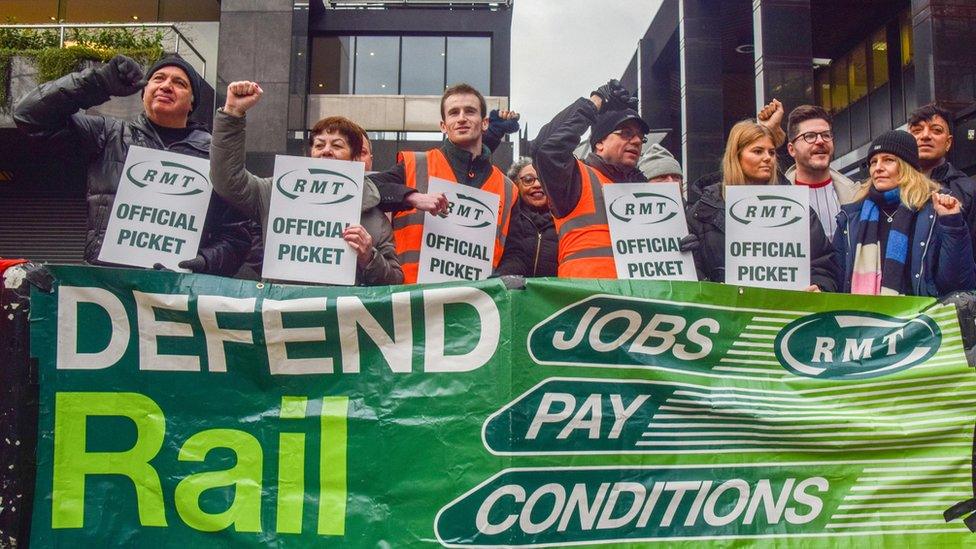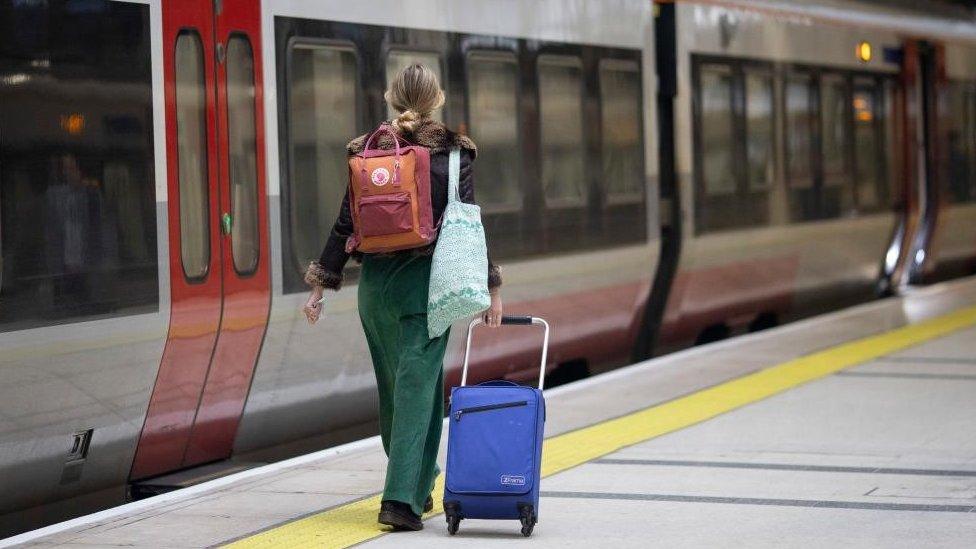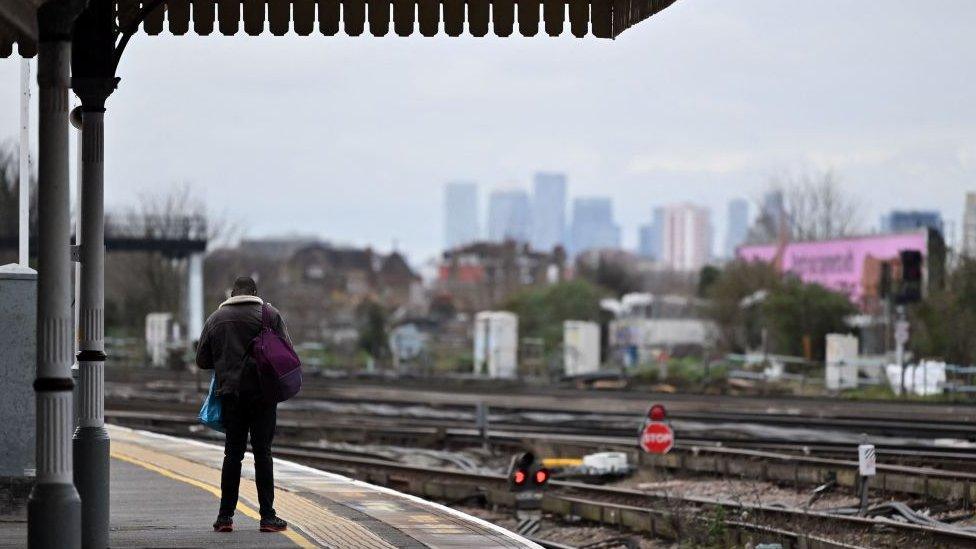RMT members at Network Rail vote to accept pay deal
- Published

Thousands of signal workers and maintenance staff in the RMT union have voted overwhelmingly to accept an offer from Network Rail to end its dispute.
It means they will not take part in any more strikes in the long-running dispute over pay, jobs and working conditions.
RMT members who work for 14 train operating companies are still due to walk out on 30 March and 1 April.
But the Network Rail result will be seen as a significant breakthrough.
RMT general secretary Mike Lynch said the offer had not been as high as he would have liked, but members had voted decisively to accept the deal.
"We're not pretending this is an overwhelming victory," he said. "We're not celebrating the outcome, but we do accept our members' verdict that they have said 'this is enough'."
The turnout for the vote was nearly 90%, said the RMT, with 76% of members voting in favour of the pay offer.
The deal comes after Network Rail amended its previously rejected offer of a 5% pay rise for 2022 and a 4% increase this year.
The government did not put any more money on the table, but the tweaked proposals backdated this year's pay increase by three months, meaning workers end up with a bigger lump sum upfront.
The RMT - the country's biggest rail union - said the offer amounted to an uplift on salaries of between 14.4% for the lowest paid grades to 9.2% for the highest paid.
The package also included heavily discounted leisure travel.
Transport secretary Mark Harper welcomed the "resounding" vote in favour of accepting the offer.
"I'm very pleased, on behalf of the travelling public, that at least on the Network Rail side of the rail business we've now solved the industrial disputes," he said.
He said Network Rail would proceed with the modernisation and maintenance reforms, that the RMT opposes.
Mr Harper said he hoped the deal would be followed by a vote amongst staff in dispute with the train operating companies, represented by the Rail Delivery Group (RDG), who he said had made a "fair and reasonable" offer.
Mr Lynch said he would be meeting with RDG representatives on Tuesday, but that next week's strikes would still go ahead unless they received a "cleaner deal".
That should include more money and a dilution of some of the companies' demands, Mr Lynch said. The question of driver-only operated trains and the removal of ticket offices still had not been resolved, he added.
With a deal agreed at Network Rail, the disruption for passengers from future action will be on a slightly smaller scale, since maintenance and signalling staff will not be involved. It also means train operating companies that aren't directly involved in the dispute will be unaffected.
During last Saturday's strike, workers at 14 train operators walked out, with between 40% and 50% of trains running.
Workers in various industries have held strikes, mainly over pay, which has not increased in line with rising prices. Inflation - the rate at which prices rise - is at its highest in nearly four decades.
Striking industries include nurses, junior doctors, civil servants and teachers.
- Published8 March 2023

- Published9 May 2024

- Published18 March 2023
